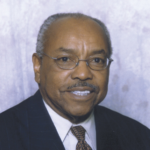The present discussion of affirmative action is not talking about the same thing we discussed in the 1960s. Forty years ago, affirmative action was a remedy meant to ensure individual equal opportunity in hiring, recruiting, training, and bidding for contracts in the market place–making discrimination against the law. The result was the 1964 Civil Rights Act.
Today, we hardly hear the terms “civil rights” or “individual equal opportunity” during this debate. What’s important now are “equal group results” and college admission programs where you get extra points just because of your skin color. Civil rights and equal opportunity became affirmative action, and now that’s turned into “diversity.”
Since the Court decision I have been interviewed by television stations and news talk radio shows. I’ve also talked to a number of college students. Within the first minute of these conversations, the discussion becomes all about racism, white guilt, victimization, or preferences. Nothing about whether students are equipped to compete and graduate.
But the number one civil rights issue as we begin this century isn’t race, it’s the dismal quality of education nonwhite children are getting. Racism is endemic in American culture, and the best tool for handling it is an education.
Preparing for Opportunity
A young black student with passing grades asked me, following a speech I gave at Northwestern University’s School of Law, the big question. “As a member of the Illinois Board of Higher Education, will you comment on what we are going to do if the Supreme Court votes against affirmative action?”
I responded, “the politics of the University of Michigan will take care of itself. Your major concern should be, how many ‘As’ can I get at this University, so that you are armed for the battle you want to join.
“Remember that Martin Luther King finished high school at age 15, college at 19, and had a Ph.D. by age 26. Then he tried to save the world.”
I believe strongly in the original concept of affirmative action, to increase the pool of candidates for job selection, contracts, and admission to colleges without regard to color, race, or sex. In short: first-class citizenship. Now, we can create our own expectations.
Affirmative action is no longer a simple issue. Along the way it has picked up a wagon load of baggage with serious negative side effects for blacks in particular. Frederick Douglass said it best almost 140 years ago in a speech titled, “What the Black Man Wants”:
“I utterly deny, that we are originally, or naturally, or practically, or in any way or in any important sense inferior to anybody on this globe.”
Justice O’Connor’s vote for “student body diversity” was not a vote to continue affirmative action, but rather a vote to mend it with a compelling interest until 2028. Looking into the future, she said “I hope it looks as though we don’t need artificial help to fill our classrooms … if we do our job on educating young people, we can reach that goal.”
What she didn’t say strongly enough, perhaps, is that America’s public school system is not equipping all children to compete and graduate. This is where we should focus our attention and our energies and efforts, so that in 25 years students will be equipped to take advantage of opportunity.
Lee H. Walker is founder and director of The New Coalition at The Heartland Institute. His email address is [email protected].




